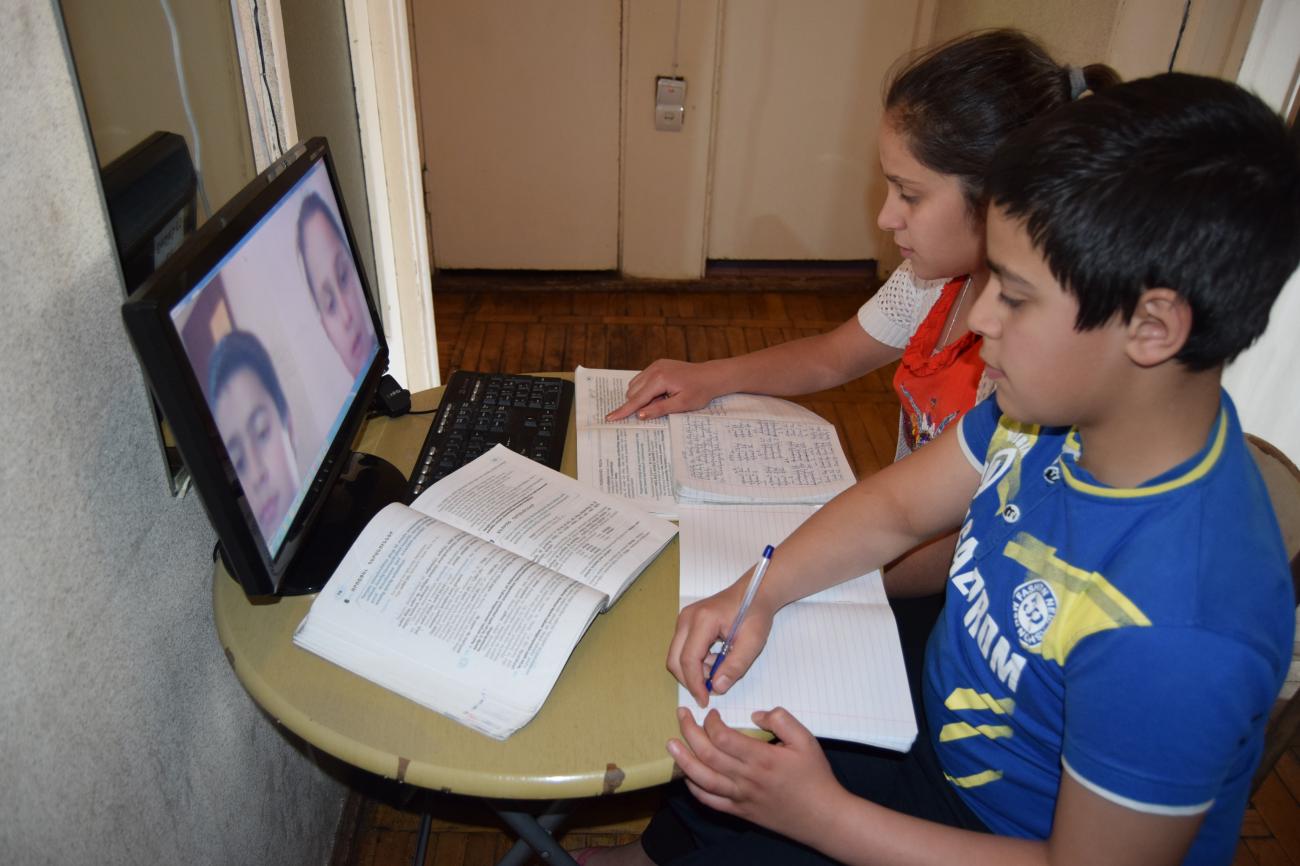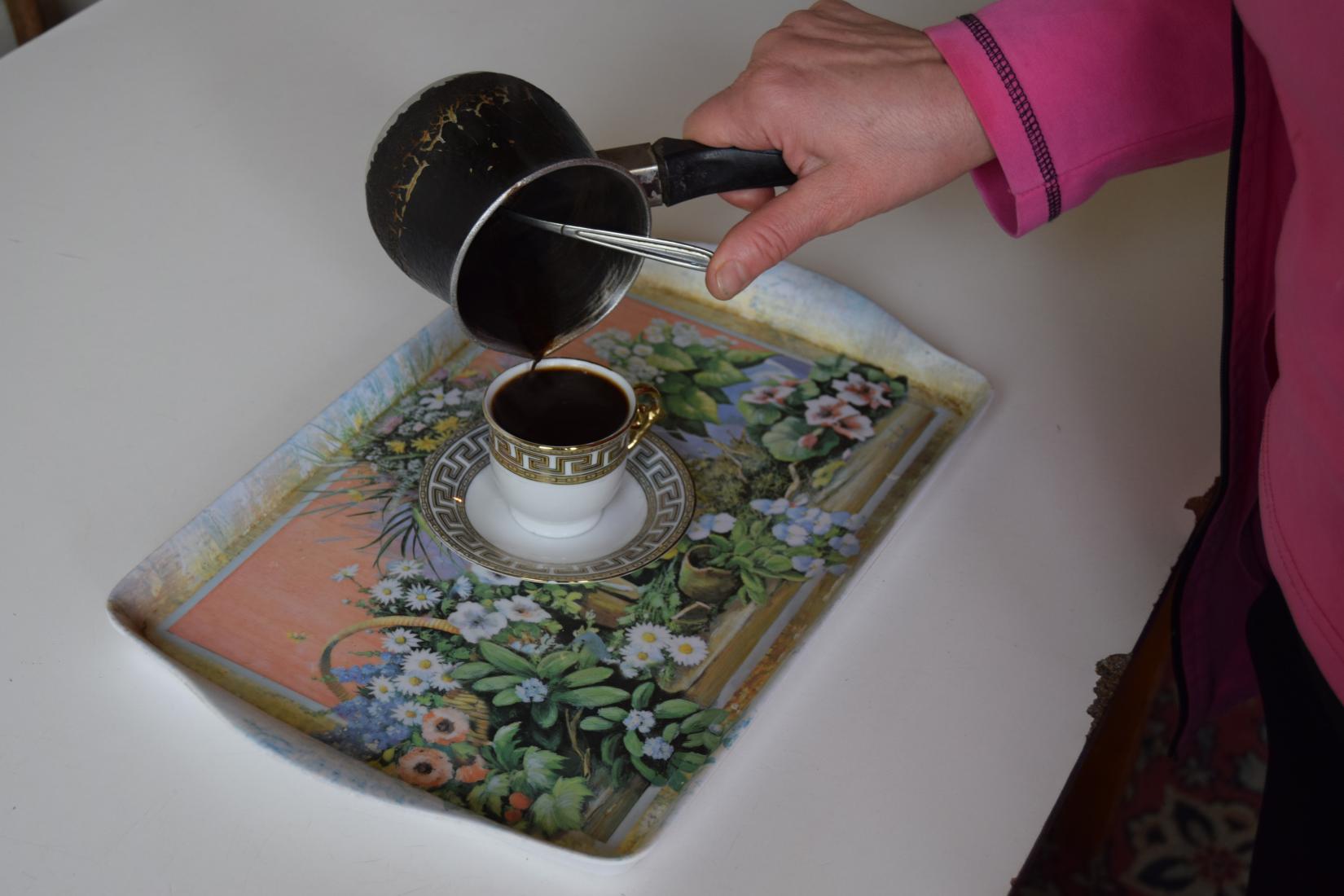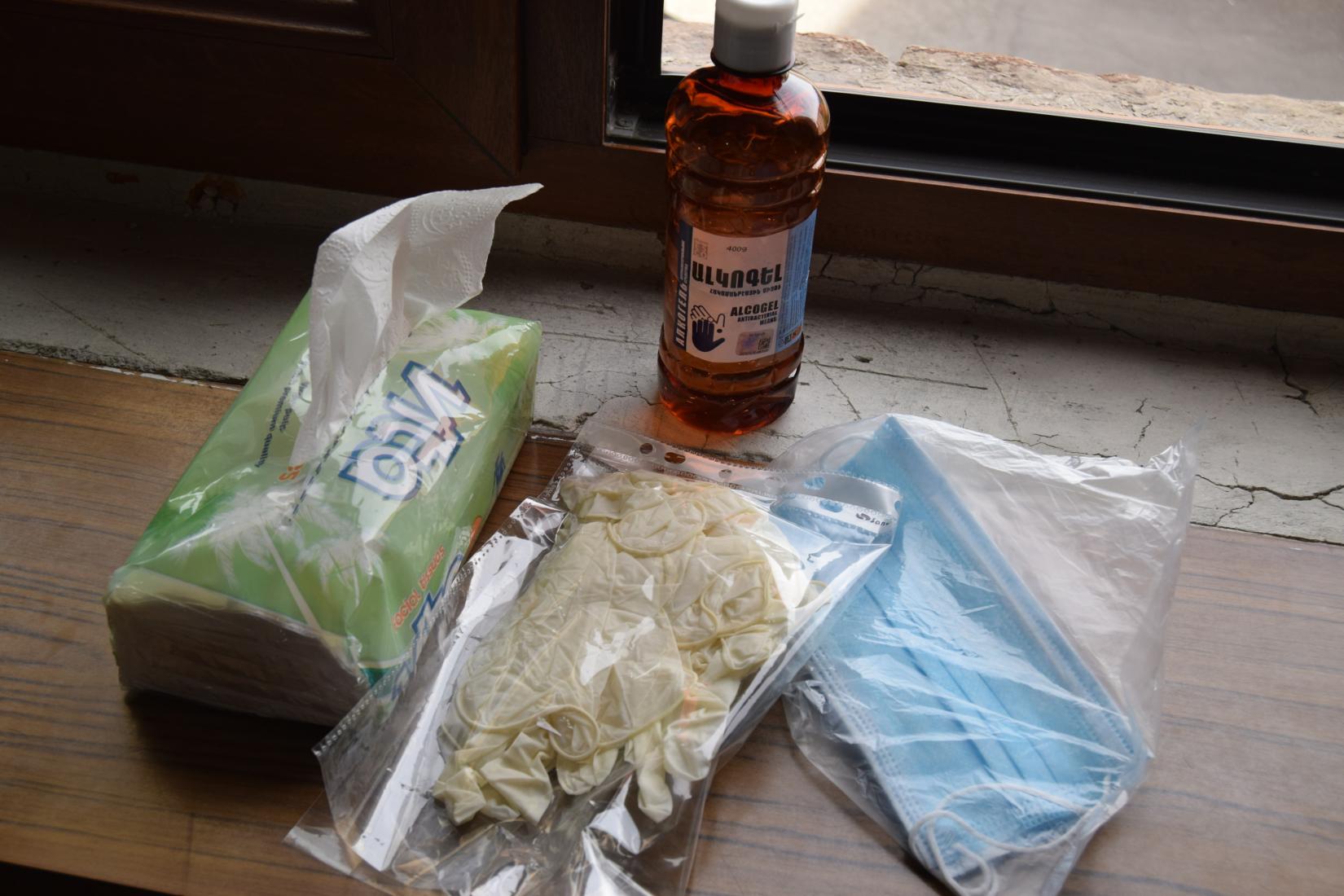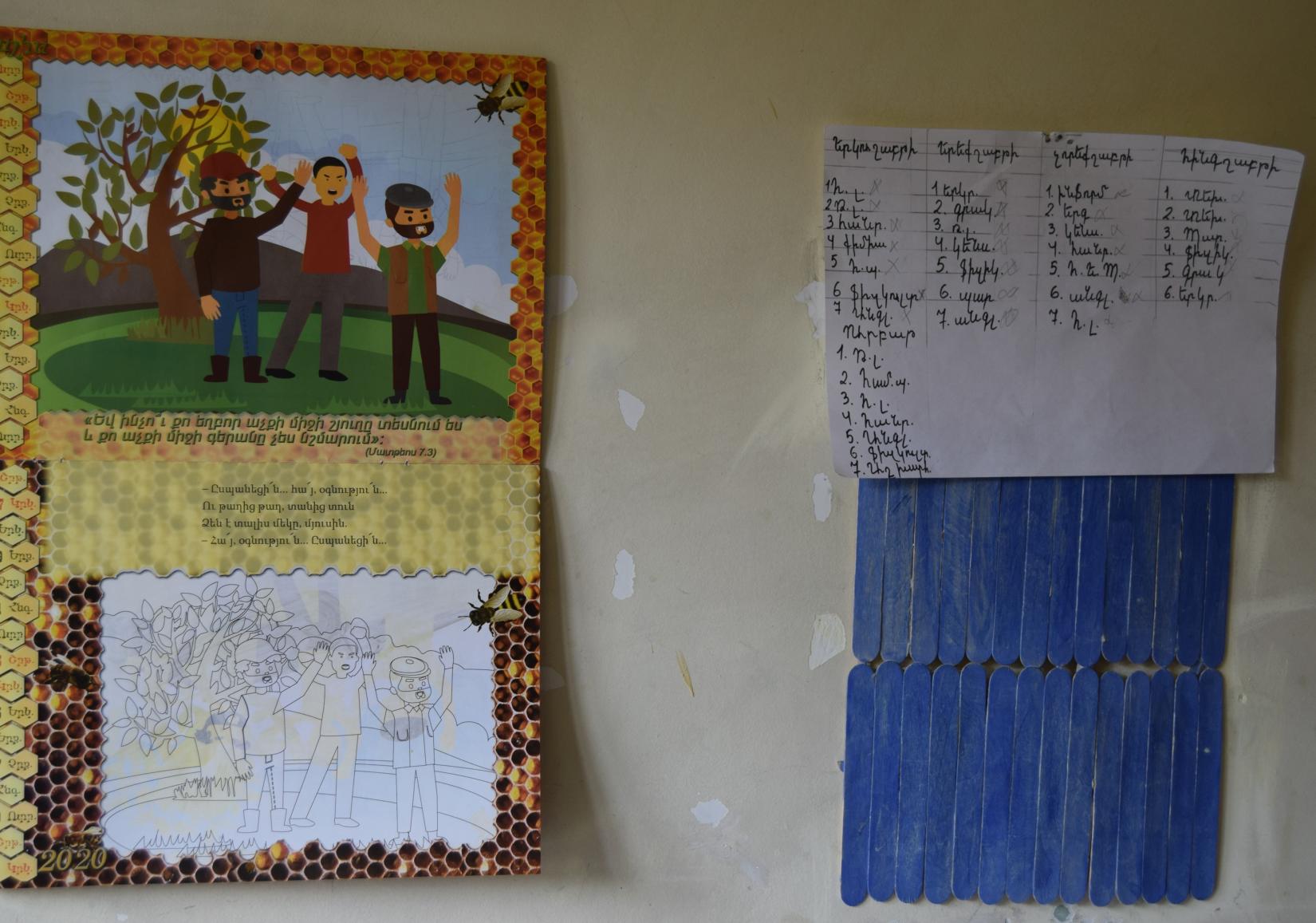Displaced Syrians in Armenia have to choose between paying for the rent or buying food for their children

The COVID-19 emergency threatens the ability of displaced populations to survive and thrive in Armenia.
Life was going on quite well for a displaced Syrian family living in Armenia when COVID-19 outbreak emerged within the country. Now, the family of George (62) and Ani (54) Hakobean is striving to make ends meet, choosing between paying for rent and buying groceries to feed their 12-year-old twins, Salpie and Sahag.
In 2015, the family made the difficult decision to leave their home and profitable business in Syria to find refuge in the land of their ancestors - Armenia. To rebuild their life, they started from scratch gradually adjusting to the new culture, language, and community. Like the majority of the displaced Syrians, the Hakobeans live in a rented apartment in a remote district in Yerevan trying to navigate through the difficult social and economic environment relying on short-term jobs with meagre income. While George is making some money by taxi driving, his wife Ani is supporting the family by baking for neighbours.
The COVID-19 pandemic impacted the Hakobeans' and many other displaced families in unexpected and unprecedented ways. UNHCR decided to visit the family together with its frontline partner Mission Armenia NGO.

“I wouldn’t have thought that the life would hit us with more hardships. While enjoying peace and safety, we have to struggle for every day of our life in Armenia relying on the support from others, hoping for better future for ourselves and our children,” - said Ani with sadness in her eyes.
In addition to the challenges associated with social and economic integration, lockdown and isolation left many displaced families feeling hopeless and anxious about their future.
“We are in constant fear of appearing on the street. I haven’t made a penny for the last two months, but the landlord demands us to pay the rent. How longer can we survive like this? I don’t know,” George added, trying to hide his embarrassment from his children. “We can hardly pay the bills… we have to save on everything, we save on our children… prepare less food for them hoping for assistance from elsewhere to be able to survive,” Ani continued.
George, who was healthy and doing well when he lived in Aleppo, got sick with a chronic disease soon after his arrival in Armenia. In poor health and unable to make ends meet, the pandemic aggravates the challenges that George and his family now face as refugees.

To mitigate the sufferings of the displaced population and help them cope with the adverse socio-economic impact of the COVID-19 emergency on their livelihoods, UNHCR initiated a prompt and targeted humanitarian support by providing one-time multi-purpose cash assistance to 507 extremely vulnerable displaced persons, including refugees, asylum-seekers and displaced Syrian families seeking protection in Armenia. UNHCR’s emergency assistance, distributed by Mission Armenia NGO, enabled the families to cover their basic needs.
The family of George and Ani Hakobeans were among the vulnerable households that benefitted from UNHCR’s emergency cash assistance enabling them to cope with the socio-economic hardships occurred due to the COVID-19 outbreak, as well as psycho-social support and counselling essential for them during these difficult times.
The twins, Salpie and Sahag, who were completing their homework when we came, joined our conversation by telling us about their online classes and showing their new computer lent to them by the school.
“While mom and dad are sorting their daily issues, we are enjoying our ‘Zoom classroom’ and ‘online friendships’ which is quite fun,” said Sahag, and his sister Salpie added: “…but the Internet connection is so poor… I nearly missed what the teacher of Russian was explaining today…”
Salpie and Sahag are smoothly engaging in the new reality of virtual education. However, many displaced children face difficulties: due to lack of hardware, smart phone or Internet connectivity at home, they often skip their classes or have to physically join their schoolmates or neighbour children for the online studies.

Sahag told us about his local friends and their shared hobbies, and Salpie sang an Armenian song for us and shared with us her dream:
“I want to become a singer and perform on big stages.” Sahag echoed her proudly: “And I want to become an engineer and construct beautiful houses with gardens. One day, I will build a big house like the one we had in Aleppo. I will build many other houses where all the Syrian-Armenians will live”.
Indeed, shelter and housing remain a top priority for displaced Syrians in Armenia. From the total number of 22,000 Syrians who were displaced from Syria to Armenia since the outbreak of the Syrian war in 2011, the Government estimates that some 14,000 remain in the host country. From those, around 500 families are in dire need of sustainable housing to let them live and create, pursue educational and professional opportunities in Armenia.
If given a chance, Syrian-Armenians will be able to use the diverse and substantial capacities developed in Syria to greatly contribute to their self-reliance and Armenia's economic prosperity. UNHCR continuously advocates for the social and economic rights of Syrians and other displaced populations in Armenia by promoting their inclusion into the Armenian society and mainstreaming in state programs and development schemes on an equal basis with the locals.
“Without your support, we would not be able to cope with the challenges that accumulate day by day. We were nearly there... We started from scratch… scarcely but we were reaching some progress… but the COVID-19 lockdown pushed us backwards, and that was so painful,” George said sadly. “It is now difficult to prioritise which problem is to be solved first: apartment rent, buying food or saving on electricity. The assistance we receive is life-saving for us,” continued Ani with thankfulness and some optimism in her eyes.
While many of the displaced families can feel comfortable and familiar with their new home and communities, some vulnerable families still face challenges striving for decent jobs and permanent shelter, sound education and future for their children. To complement the efforts of the Government of Armenia, UNHCR, with its state and NGO partners, works together to ensure protection and integration of displaced people in Armenia, and provide urgent humanitarian support when emergencies occur.
Since its establishment in Armenia in 1992, UNHCR assists the Government in addressing the legal, social and integration needs of displaced populations from Azerbaijan, Iraq, Syria, Ukraine, Iran, Cuba, and African countries. Currently, some 19,000 displaced persons have found safe haven in Armenia.
***





